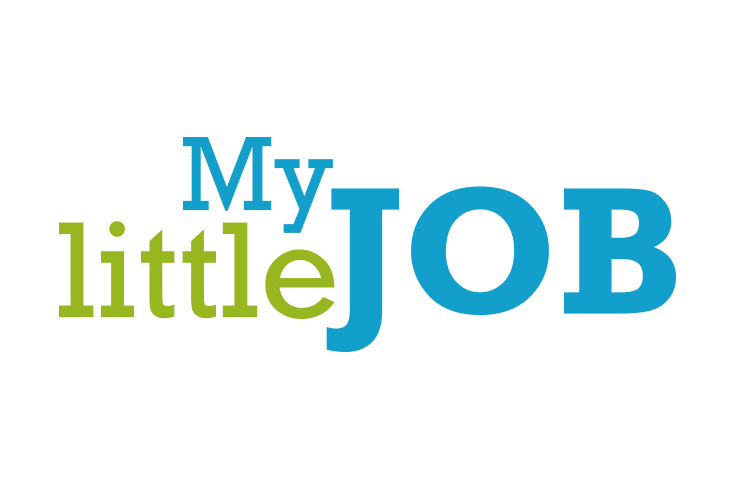Clickworker
Writing Software Testing Mobile Microtasking Other Microtask
German microtasking platform. Offers "full service" for clients who want to break down large tasks for crowdsourcing as well as "self service" platform.
Terms of Service
Rejection:negative rating Change:positive rating Warranty:positive rating Client Contact:positive rating Worker Contact:positive rating
Rejection:negative rating
Change:positive rating
Warranty:positive rating
Client Contact:positive rating
Rejection:positive rating
Platform Overview
Clickworker is a Germany-based crowd work platform with a focus on microtasks. They claim to have over 800,000 registered workers; if this is accurate, Clickworker is one of the largest microtask marketplaces. They advertise as being “full-service”, working with clients through the whole process of breaking down tasks and reassembling crowd work into coherent projects, though they also have a self-service marketplace for smaller tasks. Workers can operate anywhere they can receive Paypal payments from, though many jobs offered on their site are bound to specific countries because of client restrictions.[2]
-
Platform History
Founded as Humangrid in 2005 as an organization specifically created to process microtasks for large clients. They created their first proof of concept and prototype work in 2006, and by 2007 were accepting initial clients. [3]
-
Business Model
Clickworker charges clients 40% on top of labor costs for using their self-service marketplace, while charging higher and individually tailored rates for their full-service solutions for clients who need their tasks broken down for them.
-
Jobs and Clients
Clickworker is primarily a micro-task platform, offering tasks such as:
- SEO-text creation
- Web research
- Classification and tagging
- Processing of product data
- Survey taking
In addition, Clickworker partners with Streetspotr for “Mobile Crowdsourcing” and Userlutions for software testing and design.
Example Clients
Clickworker advertises the following clients on its homepage:[4]
- Deutsche Telekom
- Honda
- Venture Radar (startup information website)
- epoq (“Customer driven E-Commerce”)
- Tennis Point
- kiveda
- Unbotify (“Serve only Humans”)
- wefi
- Sharewise (finance portal)[5]
Clickworker also recruits workers for UHRS (“Universal Human Relevance System”)[6]. (UHRS is operated by Microsoft, as noted on the overview page for this Microsoft Research project investigating crowd workers’ experiences.)
-
Work Process
Clickworker accepts complex tasks from clients and their own staff disassembles them into microtasks, or clients post their own tasks directly to the platform. Clickworker then categorizes tasks by location and by level of skill required for each task, and workers choose tasks from those that they have the qualifications for. Workers for more complex tasks are assessed for their skills by Clickworker, especially for language and writing skills. Once submitted, work is either accepted, or for higher paid projects, proofread. Workers have the opportunity to make one correction to their work if rejected by a proofreader. If rejected again the job will be reissued and passed to another worker.
Workers can either be paid through Paypal or directly to their bank accounts, if they are in the Single Euro Payment Area (SEPA). In theory workers can work from anywhere. However, many jobs offered have country-specific worker requirements, and if there are no jobs available to be done in a specific country, workers will not be allowed to register. Additionally, logging in to an account started in one country from another one may get a worker’s account suspended. [7]
-
This information was collected from 25-100 verified workers on the platform in 2016 and 2017. More information
-
Pay
Hourly Wages MINIMUM: €0.50 MAXIMUM: €17.68 AVERAGE: €3.84 MEDIAN: €2.92 Payment Overview
With a median wage of €2.92 per hour worked, Clickworker was one of the lowest paying platforms in our survey. Only CrowdFlower had a lower median wage, at €1.57 per hour.
Nonpayment does not appear to be a significant problem on the platform, although it was common for workers to experience nonpayment once or twice during their time on the platform.
Hourly Wages
A majority of workers in our Spring 2017 survey reported equivalent hourly wages of less than €3 while actively working on Clickworker. Over 40% of surveyed workers were paid less than €2.50 / hour.
Compounding the platform’s low payment rates, most Clickworkers surveyed lived in an EU country. In particular, a vast majority respondents lived in Germany, where the platform is headquartered. Well below a typical German wage, the low pay on Clickworker is especially problematic for the 41% of survey respondents who said that Clickworker was an important or necessary component of their budget.
Hourly Wage Distribution
Percentage of survey respondents whose hourly wages fell into each category
The hourly wage data shown here only takes into account the amount of time workers spent actively doing tasks. But, as a microtask platform, Clickworker workers are paid in very small amounts for tasks that each take up only a short amount of time. The time that workers have to spend looking for work — or waiting for work to appear, when there is not enough — also constrains the amount of money that workers can actually make while working on the platform.
Many workers on Clickworker reported spending a significant amount of time looking for work or waiting for work to appear on the platform, and this was a common complaint expressed by workers in the survey:
I wish they had more offers, sometimes I have to wait too long to find another offer.
If this waiting time were taken into account — an important part of being able to work on Clickworker — real wages earned by workers on this platform would be even lower.
Nonpayment experiences
41.03% of survey respondents have experienced non-payment at least once
Although a full 41% of surveyed workers have experienced nonpayment at least once while working on the platform, all of these workers also reported that the occurrence was fairly rare.
Frequency of Nonpayment Experiences
On Clickworker, all nonpayment issues reported by survey respondents seemed to be a result of requesters/clients rejecting work, and were not obviously due to platform bugs or mismanagement.
Sometimes workers understood why their work was rejected:
The times when my work were rejected is if I gave the wrong answers to what they were looking for.
However, sometimes clients/requesters made errors in setting up tasks — such as not setting up a survey properly — which then resulted in workers not being paid for completed tasks:
A couple of times surveys [I] have completed have not produced a confirmation code so I had nothing to enter into the code box which confirms you completed the task.
Some workers also reported that they did not always understand why their work had been rejected. A few respondents thought that they had completed a task correctly, but were not paid for the work as it was rejected by the client.
-
Communication
Communication with platform management and other workers is fairly good on Clickworker. Most workers at least knew how to get in touch with management as well as other workers, and most had positive experiences in communication with both.
However, communicating directly with clients was a challenge. A vast majority of workers reported this was not possible at all, although we have not yet confirmed this with the platform.
Communicating with management
Over half of respondents in our survey (53.8%) had communicated with management at least once in the past. An additional 35.8% reported that they knew how to ask platform management a question, even though they had never needed to use this feature.
Although a few workers had negative experiences with management not responding promptly to their questions, most workers had good experiences all around. The platform received especially high ratings for responding to workers respectfully and usefully.
Percentage of respondents who said that communication with management is...
Communicating with clients
About a quarter of respondents said that it was possible to communicate with management, but they had never done so. Only one respondent reported actually communicating directly with clients. Because of these low numbers, we do not have data about the quality of client communications.
Over two thirds of workers (69.2%) reported that either they did not know, or it was not possible to contact clients directly. This could be a problem in the case where workers need to clarify task details, and also limits workers’ abilities to build relationships that would allow them to develop better paying and more regular work for a client directly, without the platform intervening as an intermediary.
Communicating with other workers
Clickworker does provide an official worker forum, and one third of workers surveyed used this forum to communicate with other workers. An additional 38% of workers knew that there was a way to communicate with other workers as part of the official platform, but had not used the feature.
Respondents with experience on the official forums were generally positive about their communications with other workers, finding the experience to be generally enjoyable, useful, and respectful.
Percentage of respondents who said that communication with other workers through the official platform is...
Beyond the official forums, many workers also communicated with other workers off-site. Workers used external chat systems, as well as social media sites including Twitter, Facebook, and reddit to connect with others on the platform.
-
Evaluation
Clickworker does not have a standalone evaluation system for clients to rate workers. However, the platform does have a process for clients to either accept or reject work; and the platform has some qualifications available to workers that allow them to take on different tasks.
Of those workers who considered these two processes to be forms of evaluation, most found them to be timely, useful, respectful, and fair.
However, about a quarter of respondents raised some kind of concern about at least one of these processes.
Percentage of respondents who said that evaluations of workers are...
Contesting rejected work
As noted in the payment section, some workers were not paid for tasks that they thought were completed correctly. There is no feature directly integrated in the task interface to contest rejected work or nonpayment. However, some workers reported succes in contacting Clickworker directly and asking for a reconsideration. As one worker reported:
You have to take screenshots to demonstrate that you are right, and then clickworker can contact the client.
Another worker who had been banned, also reported success getting in touch with clickworker via email:
You can email clickworker if you have been banned and get them to reconsider or look at it.
It is good that the platform appears responsive to these kind of complaints. However, not all workers seemed to know this kind of direct appeal was possible, and some reported being frustrated by the rejection process.
When a work is wrong I don’t know why and most of the works are check by other workers, who maybe are wrong.
In addition, given that many tasks on Clickworker are very short, and pay only €1-2 each, the overhead for workers to contest a rejection is significant. The time it takes to compile screenshots, document an unfair rejection, and correspond with patform management is likely worth far more to the worker than the amount of money lost on the task. This disincentivizes workers from ensuring that they are paid for all of their work.
Special assessments and qualifications
Passing certain assessments on Clickworker allows workers to qualify for special jobs. In particular, several workers in our survey were familiar with the assessment to be able to do tasks through the “Universal Human Relevance System” or UHRS – a secondary system that is not part of Clickworker directly (see this Clickworker blog post for more information).
While some workers were successful in passing the UHRS qualification, and accepting tasks through this secondary platform, several workers encountered dificulties in the process.
For example, one worker did not understand why they had not received the second part of the UHRS qualifier, after successfully completing the first part of the asessment:
I have heard about being given a chance to take the UHRS assessments, which would give me the opportunity to receive work tasks with better pay, but I have not received the second part of the UHRS assessment. I wish there was an announcement [about] why it is taking so long for the assessment to show up.
Another worker reported passing a qualification, but then being unable to start any tasks on the secondary platform:
I got the assessment with 100%, but then going to this new environment is not allowing me to get involved in anything new, and the platform seems blocked.
Multiple workers found it frustrating that they could not retake qualification tests. For example, one worker reported encountered technical difficulties while completing the assessment preventing them from passing:
I got some lower score than 100% because some errors appeared when I was doing one qualification due to browser problems. But was not able to retake it fully according to the rules although it was due to technical issue.
Another worker was disappointed that after gaining more experience and learning things over time on the platform, they weren’t able to retake some tests:
As much I work for Clickworker I get more experience, but I usually can’t do again the test qualification to improve my work.
Although tests provided a way for workers to prove their suitability for some tasks, most tasks on the platform are set up in a more free-for-all manner, frustrating some workers who wished the platform – and clients using it – were aware of their personal technical knowledge and would better match them with job opportunities taht could take advantage of their particular skillsets.
These responses underscore common problems faced by crowdworkers on many platforms: a lack of transparency in the work and qualification process, and an environment that is not designed around helping workers to grow, develop, and then leverage their experience and skills.
-
Tasks
We have not completed our review of tasks on this platform. Preliminary statistics from our survey follow. More details to come soon.
Positive features of tasks on Clickworker
How often is the work ...
... meaningful?
... interesting?
... fun?
... satisfying?
Negative features of tasks on Clickworker
How often is the work ...
... physically dangerous or harmful?
... demeaning or psychologically harmful?
... ethically questionable?
-
Technology
For the most part, workers were happy with Clickworker technology — which, in this case, is primarily just a website.
Most workers found the website to be reliable, and they did not frequently encounter technical issues that prevented them from doing their work or getting paid. Indeed, several workers commented that Clickworker was a particularly reliable platform for processing payments in a timely manner.
Percentage of respondents who said the technology is...
A few workers noted that improvements could be made in terms of device accessibility – some had difficulty using the site outside of Internet Explorer which was not available for their Apple computer, and others wished that the site – and all tasks – functioned properly on a smartphone.
-
Things Workers Like
In general, workers had positive things to say about the flexibility of working for Clickworker. Many workers commented on the platform as something that was good for people who wanted to work from home, and needed to have flexibility and control over their schedules.
Several workers mentioned liking that there are a variety of tasks on the platform; they liked that it is not all just one kind of thing. Others liked that the platform gave them a way of “feeling productive.”
Multiple workers noted that the platform’s payment process seemed to be reliable.
-
Worker Concerns
The most common issue raised by workers was the lack of available tasks on Clickworker:
I like working for Click Worker but wish it was busier.
I just wish sometimes, they had more job offers to do.
The most frustrating part is waiting for work.
Job Availability
The lack of job reliability made it hard for workers who depended on their income from the platform:
There’s no regular work. Sometimes I earn 3€‚ one week, another week I earn 15€, another €40€.
Feeling Out of Control
The inconsistency in work availability left some workers feeling like they were not in control of their time or work:
I feel in control of the work but have no control over when work will be available.
[Do you feel in control of your work?] Sadly, no. Because i wish they had more offers, sometimes i have to wait too long to find another offer.
Needing to Refresh the Page Frequently
Related to these problems with work availability, workers described the frustration of refreshing the page frequently:
[What do you dislike?] Waiting a lot for work to appear and the fact you have to refresh all the time.
They also disliked that they could miss out on work if they weren’t refreshing at just the right moment:
There is hardly any work at the moment and you have to keep checking the website and can literally miss earning money by seconds.
One worker suggested the site could improve this situation with an alerts feature:
I don’t see many jobs come up. It would be nice to receive alerts when new jobs are added.
Pay
In addition to the overall lack of work on the platform, there was a further lack of work that paid well, as discussed in the payment section above:
The amount of jobs available is too little. … A suggestion for one change is to increase the pay a little bit more for the more experienced people.
Workers also disliked that pay did not always scale appropriately with the difficulty of the task, or time it took to complete a task:
Also, it would be nice to have more jobs available with better pay on the more difficult tasks that take longer time to finish.
Lack of Transparency
The final cocnern raised by workers in our survey related to the lack of transparency on the platform.
I would like to know, when I have done somenting worng, what wrong is and why. Also I would like to repeat the qualifications.
As mentioned in earlier sections about evaluation and nonpayment, workers did not always understand why work was rejected, and they felt that the qualification system was not always fair.
-
Ability to Refuse Payment Rejection:negative rating
Nonpayment is allowed if review by platform operators reveals "deficiencies in the work product". In most cases, the worker has three days to fix deficiencies. -
Change to Terms of Service: Change:positive rating
While workers must be notified of change to the Terms of Service six weeks in advance, unilateral changes are still possible. -
Warranty Warranty:positive rating
With some exceptions, workers have three days to revise rejected work. -
Contact with Employers Client Contact:positive rating
No prohibition on contact with clients. -
Contact with Workers Rejection:positive rating
No prohibition on contact with other workers.
-
Notes
- clickworker Homepage https://www.clickworker.de, accessed 2017-04-06
- “How It Works”, Clickworker https://www.clickworker.com/how-it-works/, accessed 2017-04-11
- https://www.clickworker.com/2010/06/29/35-mio-euro-kapital-fur-humangrid-in-2010/, accessed 2017-04-11
- Clickworker Homepage https://www.clickworker.de, accessed 2017-04-06
- See the Sharewise case study on the Clickworker website.
- As described by the guide to UHRS on the Clickworker website, which describes it as a “partner website”.
- Clickworker FAQ https://www.clickworker.com/faq/, accessed 2017-04-11













